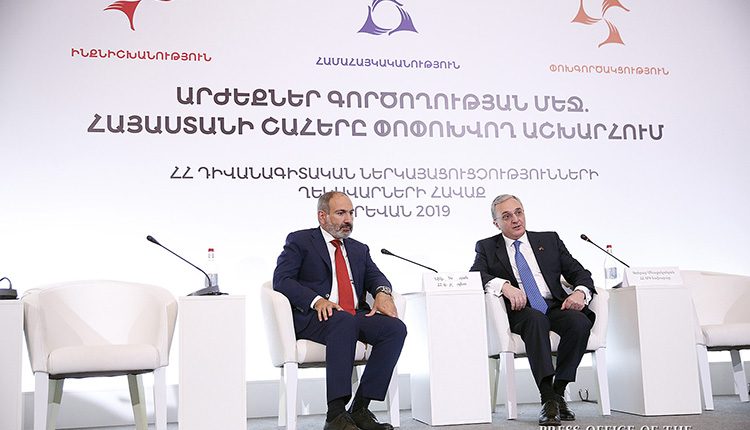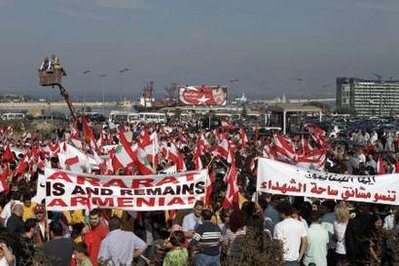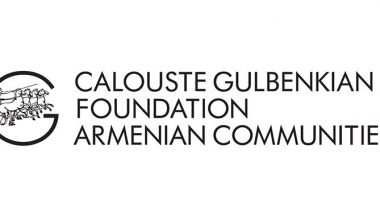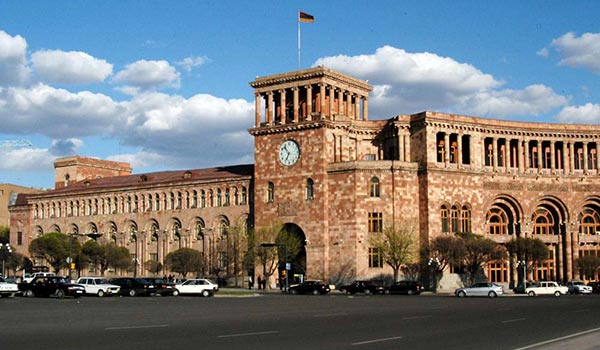YEREVAN — Prime Minister Nikol Pashinyan claimed on Tuesday that Armenia’s foreign policy has undergone significant changes during his more than yearlong rule.
“I repeatedly stated during and after the 2018 revolution that there will be no U-turns in Armenia’s foreign policy and there have indeed been no U-turns … But this doesn’t mean that nothing has changed in Armenia’s foreign policy. In fact, a lot has changed in Armenia’s foreign policy,” Pashinyan told Armenian ambassadors abroad and other senior diplomats holding an annual meeting in Yerevan.
“The most significant of those changes is that our traditional policy of balancing has been replaced with a policy of having our own clear position and consistently defending that position,” he said in a speech. “Of course this does not mean that our government has renounced balancing and flexibility. That is impossible and not prudent.”
“But balancing without having a clear position that corresponds to our country’s national interests means putting Armenia in a position of a sliver that has fallen into a deluge,” he added.
“The goal of our foreign policy, therefore, is to ensure the sovereignty and security of the Republic of Armenia, to consistently raise the level of sovereignty and security, and to create a more favorable external environment for the security and prosperity of our country and its citizens.” Pashinyan said.
0Pashinyan did not specify that “position” or concrete forms which his foreign policy changes have taken.
Pashinyan strongly criticized some of Yerevan’s foreign policy choices when he was in opposition to the former Armenian government. In particular, he denounced its decision to join the Eurasian Economic Union (EEU) and accused Russia of undermining Armenia’s national security.
However, Pashinyan ruled out Armenia’s withdrawal from the EEU and another Russian-led bloc, the Collective Security Treaty Organization (CSTO), as he swept to power during the “Velvet Revolution” of April-May 2018. Meeting with Russian President Vladimir Putin in June 2018, he said that Russian-Armenian relations will become even “more special” during his rule.
Speaking at Tuesday’s meeting, Foreign Minister Zohrab Mnatsakanian stressed that the Armenian revolution was “free from geopolitical orientations.” “Armenia did not take foreign policy steps changing the balance of global forces and it set about basing its relations with all [foreign] actors on the principle of sovereignty,” he said.










